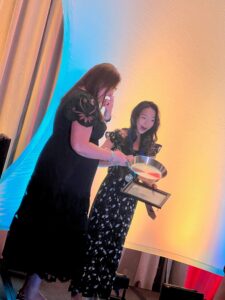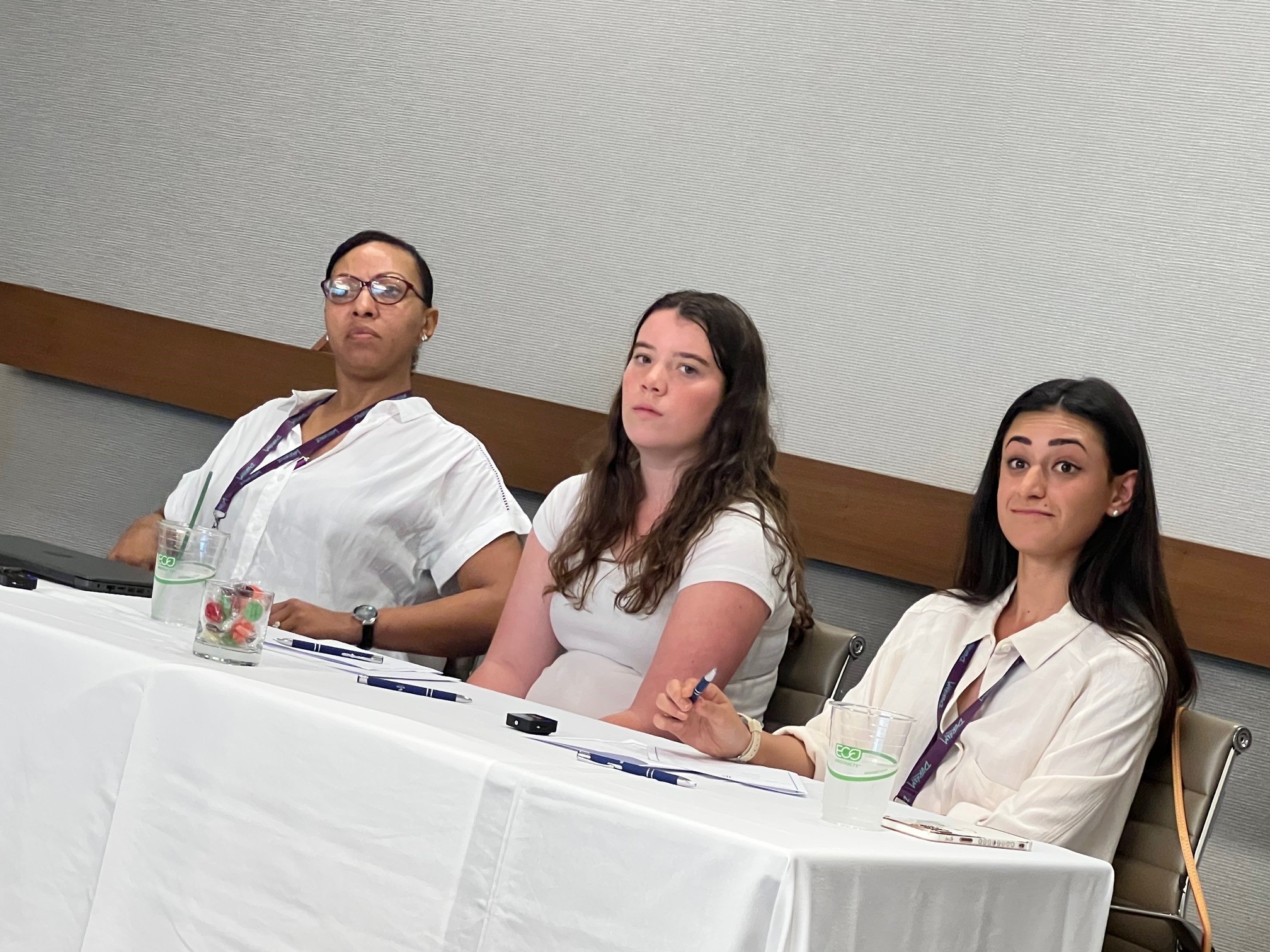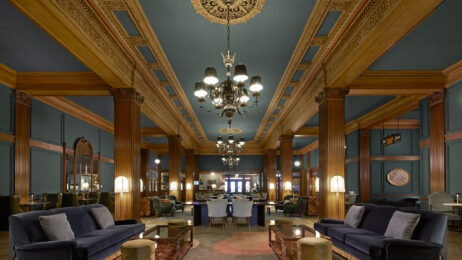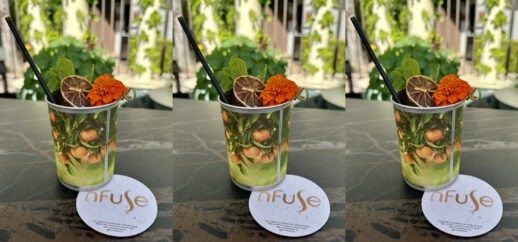Annual conference center gathering in Durham addressed staffing, sustainability and collaboration
A nine-year average drop in the age of the meeting/hospitality professional since the start of the pandemic translates into a loss of nine years of collective knowledge. Mark Cooper, president and CEO of IACC, a global association representing top conference center professionals, kicked off the annual Americas Knowledge Exchange in Durham, North Carolina, intent on rebuilding some of that collective wisdom. “Knowledge is what helps you handle the unexpected,” he said.
Read More: IACC Meeting Room of the Future Report
To that end, the conference was a forum for sharing ideas around everything from new technology solutions for keeping breakout rooms serviced appropriately, motivating teams and making the most of the resources available.
“Small meetings are powerful,” explained Susan Liston senior vice president for growth with Aramark Destinations and IACC Americas board president. She suggested that attendance at conferences in general be allocated to Human Resources budgets rather than marketing because they are powerful tools for employee development, retention and mental health.
Be Deliberate to be Creative
Led by credibility and innovation speaker and coach Amy Climer, PhD, the group pursued “valuable novelty.” “The best solution doesn’t have to be the biggest or the sexiest; it may be the one that can actually be implemented,” she advised from stage. And rarely is there only one solution, so ask those impacted early and often, “What might we do?” and respond to suggestions with the improve staple: “Yes, and…”
The conference started with a primer on how to empower teams to come up with divergent solutions before narrowing down to a path forward. It ended by going through a creativity exercise addressing five industry challenges, including, how to make the hospitality industry more attractive to people outside the industry.
Mark Cooper, CEO @IACCmeetings is bringing the venue community together to apply intentional creativity during Americas Knowledge Exchange in @DurhamNC @JBDukeHotel to the problem of the average 9 years of institutional wisdom lost in hospitality. pic.twitter.com/YVabo6ZVV6
— JT Long (@SmartMtgsJT) April 4, 2023
“As leaders and humans, we have an obligation to be creative; inventing solutions is how we serve,” Climer said.
F&B as a Competitive Sport

One of the centerpieces of every IACC Knowledge Exchange is the culmination of a Global Copper Skillet competition that brings together the four best conference center chefs from across the world for a cook-off styled after television cooking shows. The timed dish-making is judged based on food safety, waste (all discards are put into a small bowl and evaluated at the end), presentation, taste and creativity.
The idea of evaluating and holding catering dishes to the same standards as fine cuisine is a testament to how far the group dining scene has come. Tracy Stuckrath, founder of Thrive! Meetings & Events, provided the color commentary and noted the care in the form of fresh ingredients and sophisticated techniques. “The pressure is intense and yet the dishes look and smell amazing,” she said at the end.
Innovation as a Product
Another session aimed at surfacing the best of the best was a judged pitch competition for solutions to the challenges venues of all sizes face in delivering service in a post-Covid, understaffed world. Reducing food waste was an area of focus that was addressed with help from dehydrators, refrigerators stocked with leftovers for employees to take home and massive composters. The winning solution presented by Wyboston Lakes Resort in the United Kingdom resulted in 5,000 trees planted on the property and nourished by mulch from kitchen remnants.
The Next Generation

Another area of focus was attracting employees to the industry. Appropriately, since the event was held on the Duke University Campus at JB Duke Hotel and Durham County is also home to University of North Carolina at Chapel Hill Rizzo Center, a panel of hospitality students shared why they chose the industry, what they are learning and what they expect when they graduate.
“I didn’t pick hospitality; it picked me,” said Candace Hemingway. “I am treating the industry like a buffet and trying everything twice to see if like it.” As a nontraditional student returning to education after working food and beverage, she is getting safe-food-certified, learning about hospitality finance and travel planning. She is eager to get back in the market and put the skills to work in the field. “You can’t learn to drive in a parked car,” she said.
Student Riley Pittman saw the inclusion of more diverse candidates and audiences as important to filling the staffing pipeline. She said she is learning risk and facilities management as part of her curriculum and sees a hybrid work schedule as ideal. “The connections with coworkers is hard to do on a Zoom call; I missed in-person during Covid,” she said.
Student Kemmia Ghodrat advised potential employers to promote their social justice work. “Sustainability is a priority; we look for employers that support that and will allow us to help make change,” she said. She is studying technical writing and communications along with her understanding of the hospitality industry and is planning to pursue a masters to round out the soft skills she has learned.
Once she graduates, work-life balance will be a priority, she said. “For mental health reasons we may need to import the European model of not working crazy hours.”
The 2024 IACC Americas Knowledge Exchange will take place in New Jersey at Verizon Basking Ridge.




